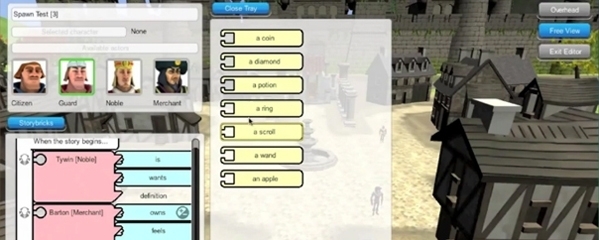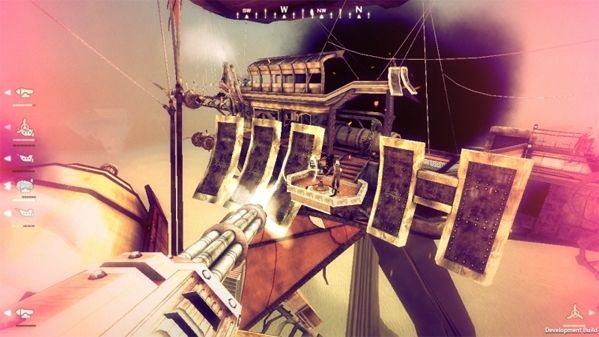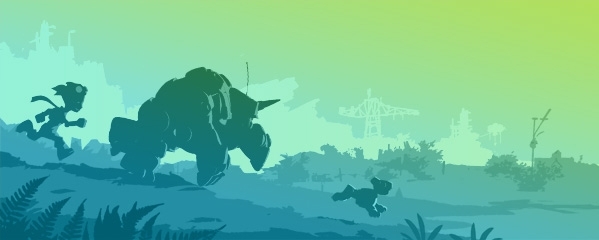Are We Becoming Kick Saturated?
With crowdfunding becoming a way that niche games can be built, Gazimoff asks if the model can really replace traditional triple-A MMOs.

A new age of video gaming is upon us. One that promises to deliver us games that we truly want to play. One that protects us from the generic mass-market approach favored by big publishers. One that encourages unique ideas and genre innovations instead of unmemorable dross. One that increases the power of the cash in our pocket, by allowing us to directly support the games we want to see created.
But is crowdfunding really the gaming panacea it's been labeled as? Are MMO gamers honestly being let down by large publishing houses? Is it actually possible to deliver an engaging massively multiplayer online experience on a shoestring budget?
More importantly, there's also an increased demand placed on the cash-strapped, time-poor MMO gamer. After paying for boxes, subscriptions, virtual currencies and more, can we really afford to splash out on every MMO idea? Will we ever get the time to play all these fledgling titles? As an increasing army of ideas plead for crowdfunding, are we going from Kick Started to Kick Saturated?
After playing MMOs for a decade, two industry truisms start to emerge. The first is that MMOs are expensive to make, requiring a range of incredibly talented people and a fleet of powerful servers. The second is that they require a large number of subscribers in order to pay for the talented people and powerful servers, enabling the game to make a profit.
The theory is that this tends to encourage the creation of 'safe' games that are likely to appeal to a wide range of gamers, both from MMO veterans and those outside the genre. But if anything, we've demonstrated that unless a new game offers us a unique and distinct experience, we're quite happy to continue playing whatever game we can find our friends on. Top-tier developers understand this, which is why every major MMO release this year is pushing the boundaries of the genre in some way.

The lure of crowdfunding platforms such as KickStarter and Rockethub is obvious. After Double Fine managed to secure over $3 million for an adventure game before a line of code had been crafted, the venue became a beacon for anyone with an idea. But, while Tim Schafer might be able to attract thousands of backers with nothing more than a promise, the same isn't true for some of the MMO ideas currently being offered around.
Can KickStarter be used to fund an MMO? Definitely - both Guns of Icarus and Astronaut: Moon, Mars and Beyond were successfully funded by fans that wanted to see these games built. Crucially though, both of these projects were securing limited funding to complete existing games that had a strongly defined scope. By contrast, Your World hoped to raise over a million dollars for a game that existed in a haze of ideas.
The cost of building an MMO is also coming down. HeroEngine, the platform used to build Star Wars: The Old Republic, starts at the bargain price of free. Unity3D, another popular engine that works on desktops, smartphones and tablets, has a free version available for you to cut your teeth on. With a couple of coders and an artist/modeler, it should be possible to create a simple MMO on a shoestring.
Although crowdfunding removes the need for a publisher, it also places risk directly on us as gamers. We might have our hopes and dreams about what might emerge, but there's a chance that the MMO might never be finished. And that's without possible scams. With the vast sums that we already spend on boxed games, subscriptions and micro-transactions, finding enough players willing to spend $40 on a dream can be tough.

Responding to this need for certainty, MMO KickStarter projects have started development before seeking funding, sharing their prototypes and early builds. Gamundo has already completed much of the back-end work on the customizable robots game Panzer Pets, while StoryBricks has their Kingdom of Default in early alpha. Likewise, both of these projects offer game styles that aren't currently met by the larger publishing firms.
Looking beyond pocket worlds and custom-made toolsets, can a KickStarter campaign offer an alternative way of funding grand MMOs that consume months if not years of our gaming time? This is much more unlikely, as the sheer number of people involved in crafting these epic sagas pushes the cost up into the tens or hundreds of millions of dollars. As we expect large worlds populated with fully voiced NPCs and a rich questing experience, we rely on talented studios and publisher backing to deliver them.
Ultimately though, the biggest struggle might be with MMOs themselves. The social ties that we form can hook us into a game for months or years. With a range of existing worlds ready to experience and several new MMOs launching this year, crowdfunded options may end up saturating the genre. Choosing where, and how, to spend our money just got a whole load more complicated.
Gareth "Gazimoff" Harmer, Staff Writer